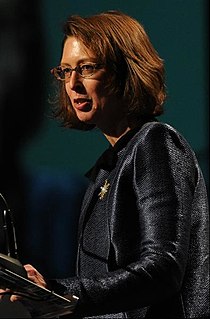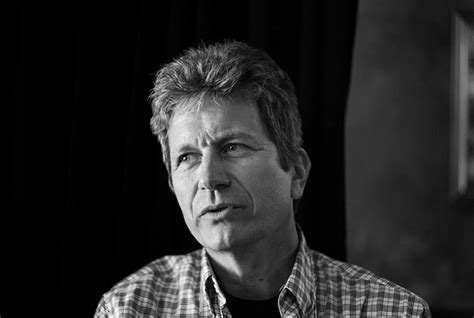Ein Zitat von Steve Miller
Technologie und Internet haben neue Beziehungen geschaffen. Es hat das soziale Gefüge der Werbung verändert: Werbung, Dating. Ein Teil des Urteils in der Kunstwelt, ein Teil davon, basiert auf den Statistiken der Menschen; Ihr Maß für den finanziellen Wert: für Likes, für Popularität. Daten und Technologie dringen in den traditionellen und klassischen Kriterienkatalog ein.
Themen zitieren
Werbung,
Kunst,
Kunst,
weltbasiert
, verändert,
klassisch,
erstellt
, Kriterien,
Daten,
Dating,
Stoff
, Finanzen
, Internet,
Eindringen
, Urteil,
Vorlieben
, Messen,
neuer
Teil,
Menschen,
Popularität
, Werbung,
Beziehungen,
festgelegt,
soziales,
soziales Gefüge
, Statistik,
Technologie,
traditioneller
Wert,
Welt
Verwandte Zitate
Ich bin in einem traditionellen Finanzdienstleistungsunternehmen tätig – aber wir bei Fidelity können erkennen, dass die technologische Entwicklung unsere Branche auf Umwälzungen vorbereitet. Was wäre, wenn diese Technologie für die Übertragung von Werten das leisten könnte, was das Internet für die Übertragung von Informationen leisten könnte?
Technologie ist etwas, das man annehmen muss, denn Technologie ist Teil unserer Generation. Digital Natives etwa sind Menschen, die in einer Welt aufgewachsen sind, in der es schon immer das Internet und Smartphones gab. Die Millennials sind nicht allzu weit dahinter: meine Generation von Menschen, die mitten im Internet waren, als es zum ersten Mal auf den Markt kam.
Die Japaner schreiben nicht alphabetisch; Sie schreiben in Piktogrammen. Sie wurden also nie visuell, sie blieben in der oralen Welt, das heißt, alles ist Teil der Realität. Was bedeutet, dass sie jede neue Technologie akzeptieren können? - „Es stellt keine Bedrohung für sie dar und sie können ihre traditionelle Kultur auch angesichts der Hochtechnologie aufrechterhalten.“
Ein Teil der Besorgnis der Menschen ist einfach das Gefühl, dass die alte Ordnung auf der ganzen Welt nicht Bestand hat und wir noch nicht ganz dort sind, wo wir sein müssen, was eine neue Ordnung betrifft, die auf anderen Prinzipien basiert ein Gefühl der gemeinsamen Menschlichkeit, das auf einer Wirtschaft basiert, die für alle Menschen funktioniert.
Es gibt eine Reihe von Emotionen rund um Geld, neue Technologien, Werbung und dergleichen, und es gibt diese sich verändernde, transformierende Art und Weise, wie wir durch die Welt gehen. Das lyrische Auge, die Perspektive der Poesie, kann so etwas erreichen, wo andere Formen des Schreibens das nicht können.
Wir sollten bedenken, dass es sich bei der Technologie nicht nur um Hardware und Maschinen, sondern auch um Software handelt. Sie können sich also die Sprachen der Technologie und das Schreiben der Technologie sowie die soziale Gerechtigkeit der Technologie vorstellen. Soziale Gerechtigkeit reduziert die Auswirkungen auf die Erde, da die ärmsten und reichsten Menschen den größten Einfluss haben.
Qualcomm hat die transformative Kraft der mobilen Technologie im Rahmen zahlreicher Projekte, die im Rahmen seiner Wireless Reach-Initiative ins Leben gerufen wurden, aus erster Hand erlebt – Programme auf der ganzen Welt, die Pädagogen, Mitarbeitern im Gesundheitswesen und Unternehmern dabei helfen, die Vorteile mobiler Technologie zu nutzen.
Wir sprechen von „Software, die die Welt frisst“, vom „Internet der Dinge“, und wir massieren „Daten“, indem wir sie als „groß“ bezeichnen. Diese Konzepte bleiben jedoch größtenteils abstrakt. Für viele von uns ist es schwierig, die Auswirkungen der digitalen Technologie auf die „reale Welt“ von Dingen wie Steinen, Häusern, Autos und Bäumen zu begreifen. Uns fehlt eine treffende Metapher.




































